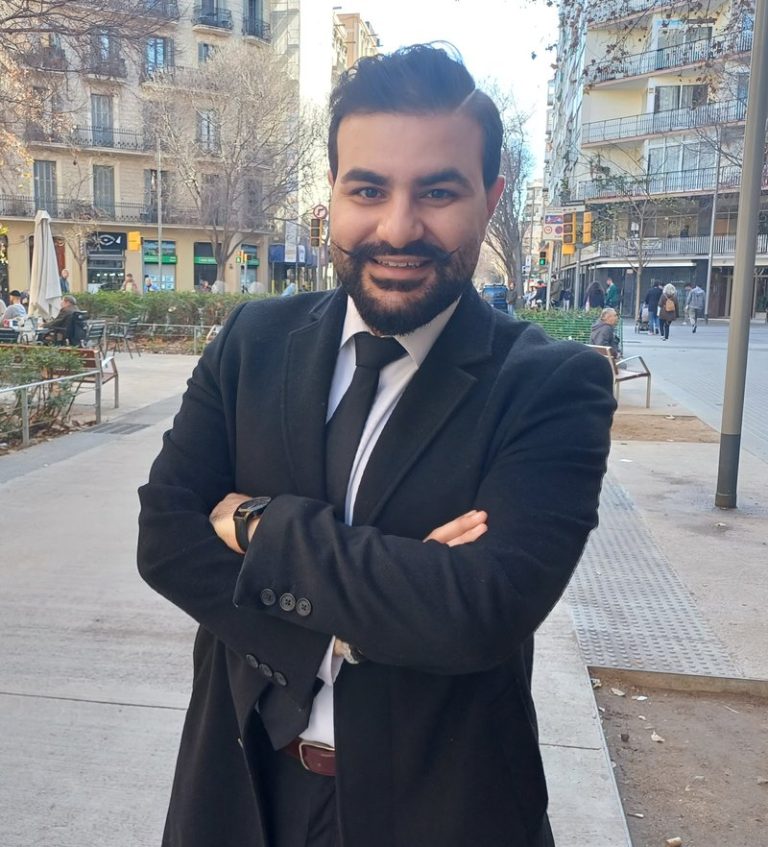Noticias
Petrosyan juega fuerte en Armenia y Uzbekistán

Un empresario catalán de origen armenio promueve dos complejos deportivos, turísticos y residenciales en los países de Asia central
Los proyectos, con una inversión inicial de 18 millones, gravitarán en torno a escuelas de fútbol licenciadas por un gran club
ANNA PINTER – BARCELONA
Petrosyan Group, un holding fundado y dirigido por el empresario catalán de origen armenio Sedrak Petrosyan, promueve dos grandes proyectos urbanísticos en torno al fútbol en Armenia y Uzbekistán. Los desarrollos, que contemplan hoteles y zonas residenciales, suman una inversión inicial de más de 18 millones de euros, en parte destinada a la adquisición de dos terrenos de 30 y 145 hectáreas en los respectivos países. «Cada uno de los dos proyectos dispondrá de un campo de fútbol y una academia profesional de este deporte que estará licenciada por un gran club», explica Sedrak Petrosyan. El empresario asegura que está manteniendo conversaciones con cinco grandes equipos europeos, entre ellos el FC Barcelona, para que participen en la parte deportiva de los complejos. El acuerdo podría cerrarse a mediados de febrero.
«El club de fútbol que finalmente firme el acuerdo en estos proyectos aportará su imagen de marca y su conocimiento para formar profesionalmente a niños y niñas de los dos países asiáticos», explica Sedrak Petrosyan.
Una vez ejecutado el proyecto, el complejo de Armenia estará valorado en 60 millones de euros y el de Uzbekistán, en 400 millones, calcula el director general del grupo empresarial.
En relación a la financiación de las operaciones, Petrosyan afirma que en parte será sufragado por fondos propios del grupo y, en parte, por aportaciones de otros socios empresariales. En este sentido, no se prevé que el club de fútbol participante realice ninguna aportación económica, más allá de la implicación de la marca.
Fase de desarrollo
El proyecto de Uzbekistán está situado cerca de Taskent, la capital de la ex república soviética. Además de las instalaciones deportivas, contará con complejos hoteleros y una zona residencial para cerca de 125.000 habitantes que, según Sedrak Petrosyan, se inspirará en el modelo urbanístico de Barcelona. «El proyecto de ciudad estará a cargo de arquitectos y urbanistas catalanes», subraya.
Por lo que respecta al proyecto armenio, se encuentra en una fase de desarrollo menos avanzada y será una tercera parte del de Taskent.
Menos de 30 años
Este joven emprendedor, que no llega a la treintena, creó el grupo en 2017. Inicialmente estaba centrado en producción audiovisual y progresivamente ha ido ampliando su negocio hacia nuevas áreas como el turismo, el sector comercio, la logística y la promoción inmobiliaria. Más recientemente, ha añadido una consultoría en inversiones internacionales. Para abrirse en cada una de las líneas de negocio, el grupo ha ido fundando nuevas firmas que están vinculadas a la empresa madre. Paralelamente, el grupo ha invertido en cerca de una decena de empresas que se encontraban en situación crítica y, tras su incorporación, las ha reimpulsado y vendido con posterioridad.
El holding emplea a 83 personas de forma directa, repartidas entre las diversas empresas, y a una serie de colaboradores externos.
El pasado año, Petrosyan Group cerró con una facturación de 25 millones de euros de la suma de todas las líneas de actividad empresariales.
Uno de los negocios iniciales que ayudaron a dar alas al grupo fue la organización de bodas para millonarios rusos en emplazamientos europeos, que supuso una inyección inicial de alta capital. Asimismo, Sedrak Petrosyan impulsó a la cadena de barberías Don Barbero, un modelo de negocio en el sector que combinaba la barbería de lujo y un club privado, con establecimientos en Barcelona y Girona.
Consultoría para inversores
Recientemente, y después de la experiencia propia del grupo en las inversiones en Armenia, Petrosyan Group ha creado una empresa dedicada a la consultoría para empresas interesadas en invertir en Armenia. «Acompañamos al inversor extranjero en sus planes de implementación en ese país», explica el director general, que asegura que la ex república soviética ha desplegado una serie de medidas para captar capital internacional para hacer el país muy atractivo. “Armenia es uno de los siete estados más seguros del mundo y tiene facilidades fiscales y burocráticas para la creación de empresas muy beneficiosas. La última compañía que hemos puesto en marcha allí, tardamos horas en crearla”, dice Petroysan, que reconoce que la familia Kardashian ha contribuido sustancialmente a poner a Armenia en el mapa y que, con la guerra de Rusia y Ucrania, Armenia ha acabado acogiendo a buena parte de la empresa rusa que quiere seguir comercializando en Europa o EEUU. La firma está asesorando a diferentes empresas catalanas interesadas en implantarse en ese mercado en los próximos meses, especialmente en el área tecnológica.
El director general del grupo empresarial explica que el siguiente paso será la apertura de EuroAsian Economic Circle, una firma con sede en Cataluña que aspira a servir de puente entre ambos territorios, Cataluña y Asia central. La nueva compañía acompañará a las empresas que quieran implantarse en aquellos mercados tanto si son compañías de grandes dimensiones como pequeños emprendedores.
Sedrak Petrosyan, que vino a vivir a Catalunya cuando era pequeño, explica que dar a conocer su país de origen y acercar ambos mundos había sido una de sus ambiciones personales desde hace años. “Hoy por hoy, nuestros planes de crecimiento como grupo incluyen esta área de negocio, dedicada a conectar ambos territorios empresarialmente”, dice.
Petrosyan Group

